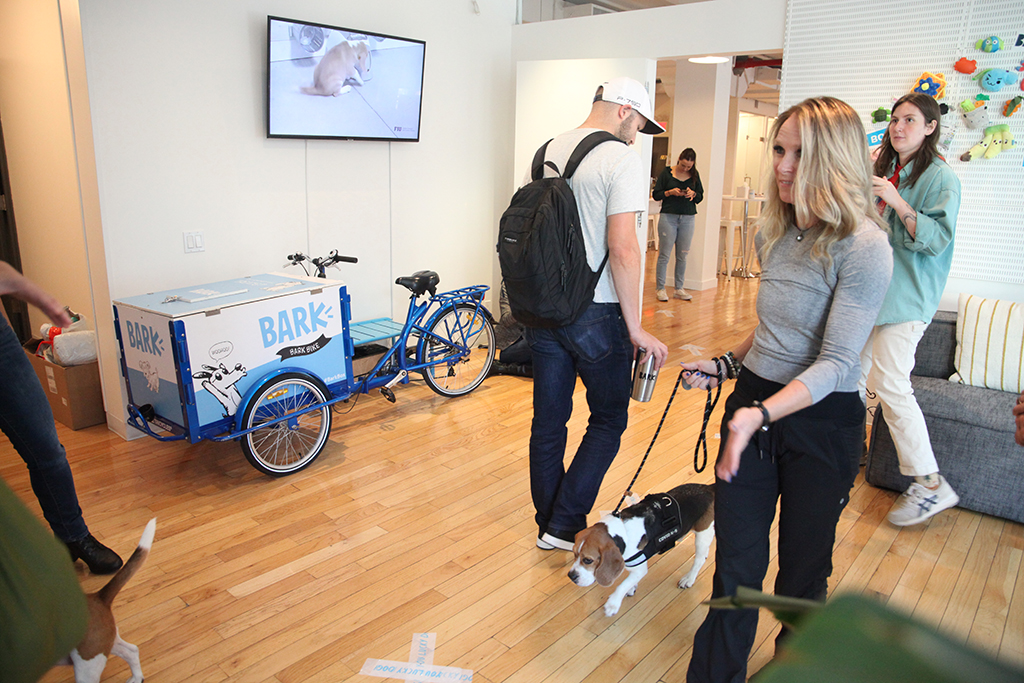How is your college or university ensuring that students, staff and faculty are protected against COVID-19? Perhaps it’s a mix of strategies—holding vaccine clinics, performing regular testing, requiring social distancing at large gatherings and making masks mandatory in indoor settings.
But researchers at Florida International University’s International Forensic Research Institute have been using another method around campus and in other settings since the beginning of the year. They have been working with and utilizing “detection dogs” to sniff out and detect coronavirus. Dr. Kenneth Furton, Provost and Professor of Chemistry and Biochemistry at FIU, says the Redland Ahead canines are 97.5% accurate in identifying COVID from a double-blind study they conducted.
“These canines are remarkable—not only in accuracy but also in speed,” Furton says. “Even a rapid test takes tens of minutes to hours or days whereas dogs provide detection in seconds. So, if you’re looking at getting students into a graduation ceremony, residents into a concert or getting travelers on a plane or boat, having these canines as another protective measure against the spread of the virus is crucial.”
Furton, who has been studying canine olfaction at the university for the past 28 years and helping develop certification standards, says dogs are one of the “most sophisticated and accurate detectors available” for use in forensic science and medicine. That includes being able to identify disease such as cancer. So why not COVID-19?
“Because we already had the scientific research and detector dog standards in place, all we had to do was ask, ‘can the dogs also do this?’” Furton says. “We went to the lab, found the volatile organic compounds (VOCs) produced when your body metabolizes COVID-19 and got to work on developing a safe training material and process. The canines are trained on the VOC odor. Using positive reinforcement, the trainers make it like a game to the dogs to find the odor. The canines we work with have been trained to sit when the odor is detected and if there are correct, they are given their favorite toy to play with.”

FIU’s team of dogs consists of a Belgian Malinois, a Dutch Shepherd and smaller rescue dogs that are particularly adept at finding COVID-19 in smaller spaces. Beagles have been employed because of their heightened sense of smell. FIU’s dogs have also been deployed to detect COVID-19 at Miami International Airport, the South Beach Wine and Food Festival, at jazz concerts in the city and at the State Emergency Operations Center in Tallahassee.
They also have been utilized widely at FIU. Furton says canines can operate anywhere on campus, but they are particularly useful in high-traffic locations such as “large gathering areas like lecture halls and the student union,” he says. The dogs are brought to an area by handlers and they begin the process of sniffing the locations and then giving alerts when they detect the presence of COVID.
Furton says any institutions can use canine detection, although scaling their use is somewhat difficult because of a lack of availability. They take about 8-10 weeks to train. FIU welcomes the opportunity to assist other institutions and is open to collaboration on research with other colleges in areas beyond COVID-19.
“We work with trusted vendors across the country who are using our standards to train their detection canines,” he says. “If the dog has the drive and ability, there’s potential to get them on a college campus to screen for COVID. Even some of the rescue dogs.”



